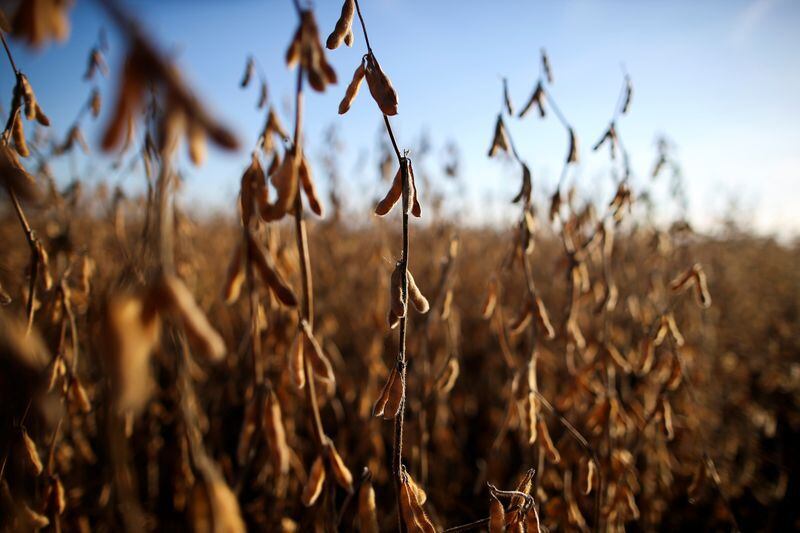
Farmers in Argentina, one of the world’s largest food exporters, said they are analyzing protests against the government after it closed soybean oil and flour exports, a prelude to what local media and experts say will be a rise in prices. export rates.
The closure of exports is considered in the sector as the previous step to an increase in the tax on shipments of the two soy derivatives, which would rise to 33% from the current 31%. Argentina is the world’s leading exporter of flour and oil from the oilseed.
The leaders of the rural sector have maintained a tense relationship with the center-left Peronism currently in power for years, for which they took the measure almost as a declaration of war.
“It’s a hit”, the president of the Argentine Rural Society (MS), Nicholas Pine. “Since yesterday I have been receiving calls from producers from all over the country wanting to make a big mobilization, stop marketing”, he added.
Argentina, a large food producer that also suffers from 40% poverty, had until Friday registered exports of some five million tons of soybean oil and other soybean by-products from the 2021-2022 harvest – on a harvest forecast of the oilseed of between 40 million and 42 million tons-, according to official data.
“We totally reject the closure of the register of exports of soybean meal and oil”, said the Liaison Commission, which brings together the four main rural associations in the country, including the SRA, in a statement.
With the amount collected from the tax increase, the Government could subsidize the prices of grains such as wheat or corn, which have skyrocketed in global markets after the attack by Russia to Ukrainesome analysts point out.
However, the Buenos Aires Cereal Exchange (BdeC) indicated on Tuesday that an increase of two percentage points would only increase tax collection for that rate by US$425 million, an additional 5% to the collection of US$9,000 million. provided for these taxes.
“An increase in the export tax on oil and flour discourages local processing, already affected by the lower availability of local and imported beans as a result of the drought”, added the BofC in a report.
Meanwhile, after a series of consultations, there was still no official information on the matter.
Argentine government authorities did not respond to queries from Reuters.
Argentina it seeks to leave behind a long economic crisis and drags along an annual inflation rate of 50%, which in recent years has multiplied poverty.
In 2008, the announcement of a similar tax increase led to a fierce fight between the center-left Peronist government and the rural sector, with roadblocks and food shortages. The current president, Alberto Fernández, then had to resign from his position as chief of staff due to the dispute.
Source: Gestion
Ricardo is a renowned author and journalist, known for his exceptional writing on top-news stories. He currently works as a writer at the 247 News Agency, where he is known for his ability to deliver breaking news and insightful analysis on the most pressing issues of the day.











